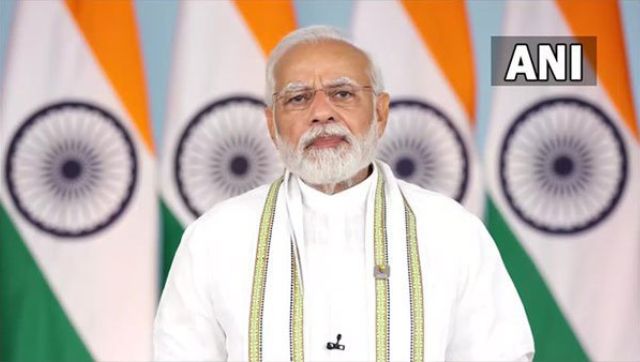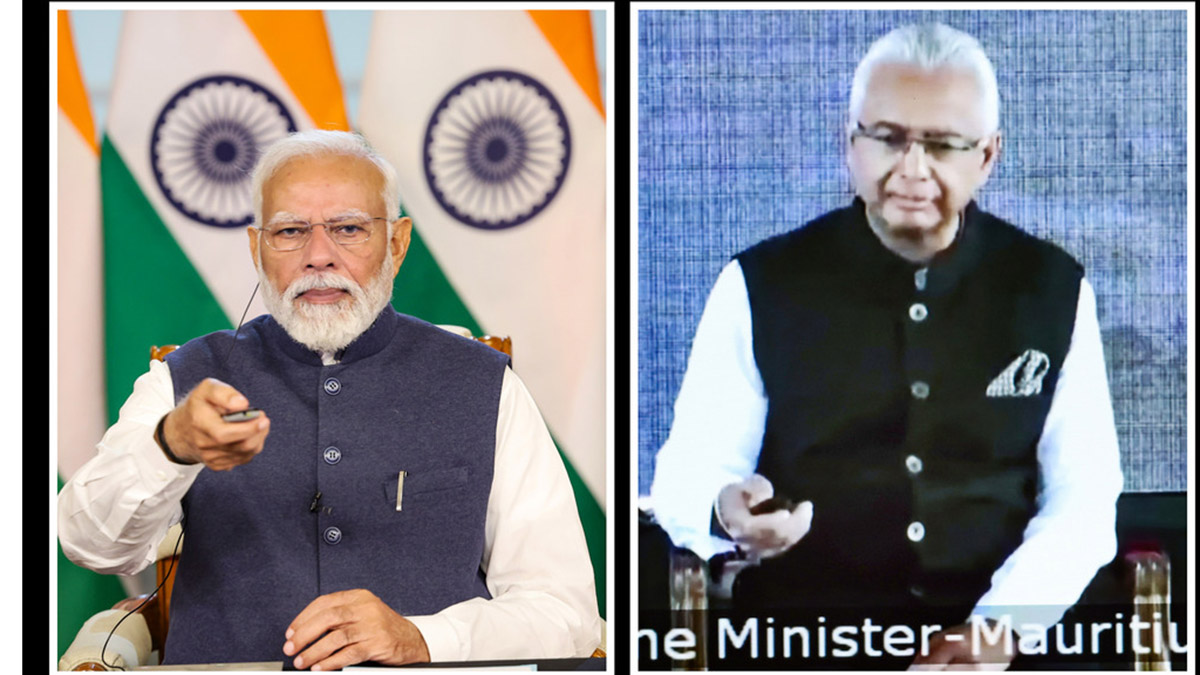Narendra Modi stormed into power in 2014 with the promise of “Na Khaunga, Na Khane Doonga”. After eight years it has little to show on its report card except for the claim of the government not being involved in any major scam. The Congress tried to kick-up a storm on the Rafale deal before the 2019 elections, but it did not stick on the Teflon-coated image of the prime minister.
Those who walk the corridors of power would say corruption has indeed come down at the top echelons of the government. However, this isn’t something the common masses experience directly, so it is negated to a large extent by the Opposition narrative of a few favoured industrialists benefiting from the current dispensation. Statistics about amounts recovered from bank defaulters pale over the perceived “jumla” of Rs 15 lakh credited into the bank account of every Indian by recovering black money of industrialists and politicians parked in numbered bank accounts in tax havens.
More telling was the low rate of conviction in cases involving politicians and scamsters. Raids by central investigative agencies, such as the Central Bureau of Investigations (CBI) and Enforcement Directorate (ED) have seldom yielded tangible results disappearing out of public memory after the initial sound and fury under the arclight of TV cameras. In the few cases of high-profile arrests, the accused walked out on bail to continue their shenanigans with impunity. None of the big fishes charged with defrauding banks could be brought back due to the complexities of international laws on repatriation of those charged with economic offences in their home countries. One major case of corruption from the UPA era, namely the 2G scam, fell flat in court leading to acquittal of the accused. All these did not cover the ED and CBI with glory and added credence to allegations by opposition parties of the agencies being used for political gains by the government.
In the Bharatiya Janata Party (BJP) ruled states — except for Uttar Pradesh, perhaps — there were no signs of abatement in graft, with tales of the Vyapam scam in Madhya Pradesh and the “thirty-percent Raj” in Karnataka. Now with elections approaching in Gujarat talks of corruption especially at lower levels are beginning to surface. Yet the incorruptible personal image of Narendra Modi has remained intact, preserving the sheen of the present government. Therefore, when the Prime Minister makes a fresh call for a fight against corruption in his Independence Day address it still carries weight with the public at large. The question, however, remains in the minds of the people if he is serious about his intent.
The doubts are not as much about the sincerity of the prime minister but on whether it is at all possible to eradicate corruption under our present political system. It is well known and understood that the root of corruption lies in electoral politics. With political stakes increasing the cost of fighting elections have also gone up exponentially resulting in the ballooning of political corruption. There has been talks of electoral reforms and bringing greater transparency in political funding for a long time. Limits on campaign expenses of candidates set by the Election Commission are utopian at best and border more on the ridiculous.
Electoral bonds, decried by the opposition as opaque, was arguably a step in the right direction but have miles to go before it makes any meaningful impact. Tax evasion and personal corruption will remain as long as the base of taxpayers is small and rates of taxation. In a shortage economy, where there is a fight for scarce resources and opportunities with bureaucratic control, rent seeking will be hard to eliminate. So, under the circumstances, what can the prime minister do even if he wishes to stem the rot?
If there is really something called a hydra-headed monster it has got to be corruption. The problem is humongous and is embedded in the deepest recesses of our governance apparatus. The challenge, therefore, would be where to begin. As the prime minister’s call for action was to the common citizens it should logically start with making their lives free from the curse of corruption. Prime Minister Modi mentioned in his speech how Direct Benefit Transfer (DBT) has helped to plug leakages in the system. Digitisation has indeed been a boon.
Jan Dhan-Aadhaar-Mobile (JAM) has been one of the best innovations of the Modi government and can certainly be taken many steps forward. But human ingenuity knows no bounds. There are reports on how henchmen of local politicians keep track of DBT money credited to beneficiaries through bank staff and turn up at their doorsteps for collections. Or how Sarpanches take their ‘cut’ before approving applications for Pradhan Mantri Awas Yojana (PMAY).
It is often joked that India is the ultimate market-driven economy because here even a driving licence and ration card have a price tag attached. Part of this phenomenon is also linked to political funding at the local level. Fighting local bodies — panchayat or municipal elections — today cost as much as an Assembly election. Often sarpanches and municipal councillors are collection agents for higher echelons of the party and operate in collaboration with local administration. Though transparency and simplification of laws can help these nexuses cannot be broken unless the state police are freed from political control. That calls for police reforms which have been lying in cold storage for years.
These complications of tackling grassroots corruption may make starting at the top appear easier. The problem here can be split into three parts. The first is institutional corruption — which can be significantly reduced by doing away with discretionary controls and having an open and objective decision making process. The second is the problem of personal corruption — where politicians and bureaucrats amass wealth that is frequently stashed away abroad or deployed in ‘benami’ business. This is linked to the issue of “dynasty” as financial capital is a prerequisite for retaining power — be it in politics or business. At a philosophical level change will come through democratisation and encouraging meritocracy. But, to create a level playing field in the short term the rule of law has to be enforced. This can be done with the help of investigative agencies. However, the key would be in the speed and rigour of execution for which a fast track judicial system is an absolute imperative.
Finally, the elephant in the room is electoral funding. This is undoubtedly the toughest of the three. Taming a pachyderm is a slow and difficult exercise. Tackling it will require both political will and consensus. The way forward can only be through formalising political funding. The baby steps taken so far in allowing income-tax deduction for political donations and Electoral Bonds (imperfect as it may be) to the next level.
Prime Minister Narendra Modi, if he is serious about leaving a mark in history, cannot go back on his promise to the people. A campaign against corruption will face intense push back as we have witnessed after the recent raids and interrogations on politicians. Eventually, there may be a backlash from within the BJP as its leaders start feeling insecure knowing that they too will not be able to avoid scrutiny at some point. However, a well-meaning and powerful leader cannot bring about a tectonic shift in political culture without support of the people. It would require a groundswell of public opinion. That is what the Prime Minister was rallying for in this Independence Day address.
The author is a current affairs commentator, marketer, blogger and leadership coach, who tweets at @SandipGhose. Views expressed are personal.
Read all the Latest News , Trending News , Cricket News , Bollywood News , India News and Entertainment News here. Follow us on Facebook , Twitter and Instagram .


)




)
)
)
)
)
)
)
)